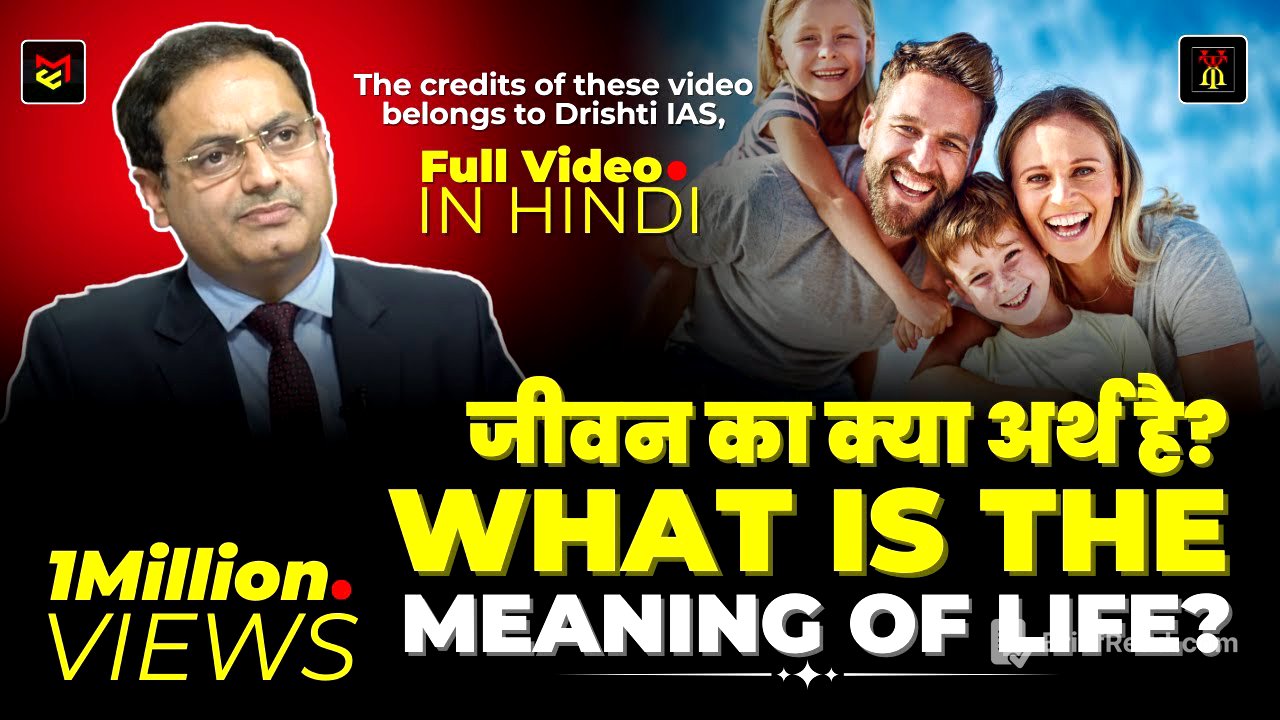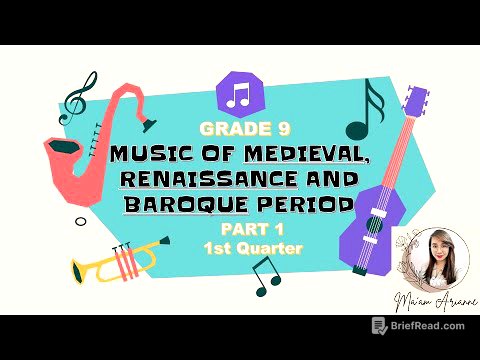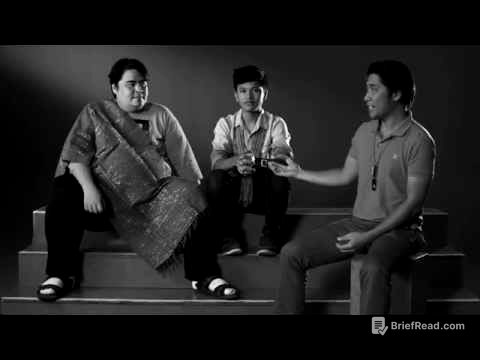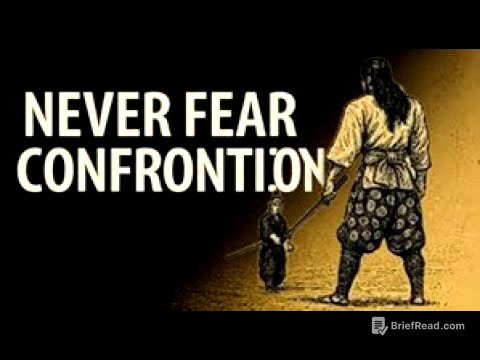TLDR;
This YouTube video features a discussion about the purpose of life, values, decision-making, and the importance of self-awareness and spiritual freedom. It explores the concept of ultimate happiness, the role of emotions, and the need to challenge one's beliefs through experimentation. The speaker emphasizes the significance of meditation and connecting with one's inner self to transcend suffering and achieve a state of enlightenment.
- The ultimate purpose of life is happiness or bliss, and external achievements are just means to that end.
- Values are hierarchical, and in conflicting situations, one must choose the higher value.
- Creative abilities and personal space are essential for a fulfilling life.
- Spiritual freedom involves recognizing the illusionary nature of the world and connecting with one's inner self through meditation.
- Challenging one's beliefs through honest experimentation is crucial for distinguishing between fact and fiction.
Defining Life's Purpose and Values [0:12]
The discussion begins with the question of the purpose of life, with various suggestions including success, marriage, respect, power, knowledge, charity, and salvation. The speaker asserts that all these purposes ultimately lead to pleasure or happiness, which is the true aim. He introduces the concept of hedonism, where happiness is considered the ultimate goal, and mentions philosophers like Bentham, Mill, and Hobbes who support this view. The speaker emphasizes that any purpose in life is merely a means to achieve joy, satisfaction, or bliss.
Navigating Conflicting Values [4:54]
The conversation shifts to values such as peace, punctuality, and honesty, highlighting the importance of integrity. The speaker explains that in life, one may face situations where values clash, requiring a decision based on a hierarchy of values. He provides examples, such as choosing honesty over punctuality or social peace over personal integrity, emphasizing that the higher-level value should be prioritized. The speaker illustrates this with a hypothetical scenario where a person must choose between attending a crucial interview and taking a family member to the hospital, highlighting the conflict between success and family values.
The Illusion of Control and the Importance of Creativity [9:24]
The speaker introduces the idea that the world may be a simulation, with individuals as characters controlled by an external force. He stresses the importance of improving one's life by enhancing creative abilities and finding a purpose beyond financial success. The speaker shares examples of chartered accountants who pursued diverse paths such as filmmaking, politics, and entrepreneurship, emphasizing that one should not limit oneself to a conventional career. He urges listeners to cultivate creative hobbies and dedicate time to personal growth.
Relationships, Personal Space, and the Semitic View on Spiritual Freedom [15:19]
The discussion emphasizes the significance of special relationships where one can openly share their thoughts and feelings. The speaker highlights the need for personal space and time for oneself, cautioning against being consumed by work and external demands. He quotes a poem that beautifully captures the feeling of being divided among various responsibilities, leaving nothing for oneself. The speaker then transitions to Western philosophy and religion, discussing the concept of spiritual freedom in Semitic religions (Judaism, Christianity, and Islam), where reaching heaven is considered salvation.
Genesis, Original Sin, and Determinism vs. Free Will [20:14]
The speaker delves into the Genesis story from the Bible, explaining the creation of Adam and Eve and the concept of original sin. He discusses the differing interpretations of this event and its impact on the relationship between God and humanity. The conversation then shifts to the philosophical debate between determinism and free will, exploring the idea that all events are predetermined and that individuals may not have genuine freedom of choice. The speaker suggests that determinism is a stronger idea, using the example of punishment and reward to illustrate the belief in free will.
The Problem of Evil and the Pursuit of Peace [29:04]
The speaker addresses the problem of evil, questioning how an omnipotent and benevolent God can allow suffering and injustice in the world. He references philosophers like Epicurus and Hadgar, who contemplated the meaning of life in the face of tragedy. The speaker emphasizes that the pursuit of peace and joy is the ultimate goal, and material pleasures are insignificant in comparison. He expresses gratitude for the opportunity to speak in a beautiful setting and acknowledges the importance of truthfulness.
Saints, Skepticism, and Sardar Patel's Legacy [39:28]
The speaker shares his skepticism and agnosticism, admitting his doubts about the existence and nature of God. He reflects on the meaning of being a saint, defining it as someone who understands the futility of worldly struggles and chooses a path of inner peace. The speaker then discusses the legacy of Sardar Patel, emphasizing his leadership qualities and the need to give him due respect. He draws parallels between Patel's character and the various forms of Lord Rama in Indian tradition.
Breaking Free from Emotions and Cultural Conditioning [51:32]
The speaker addresses a question about how to break free from limiting beliefs and desires. He emphasizes the importance of introspection and challenging one's emotions, which he identifies as the biggest obstacle to self-awareness. The speaker argues that emotions are often irrational and can lead to self-sabotage, urging listeners to prioritize understanding over feelings. He criticizes the cultural tendency to celebrate emotions and intuition, advocating for a more conscious and rational approach to life.
Understanding vs. Feeling and the Nature of Love [59:52]
The speaker elaborates on the distinction between understanding and feeling, asserting that understanding should always be prioritized. He explains that emotions are involuntary and uncontrollable, originating from the unconscious, while thoughts can be consciously directed. The speaker argues that emotions enslave individuals, while love is a higher state of consciousness that promotes freedom, understanding, and wisdom. He emphasizes that one should not be swayed by emotions but should instead do what is right, even if it feels uncomfortable.
Patience, Humility, and the Importance of Self-Awareness [1:05:52]
The speaker addresses a question about dealing with dishonesty and impatience in oneself. He emphasizes the importance of patience and humility, urging listeners to recognize the value and importance of their goals. The speaker advises against pricing spiritual goods cheaply and encourages a mindset of enjoying the journey rather than focusing solely on the destination. He stresses the need for self-awareness and honesty in evaluating one's progress.
Experimentation, Beliefs, and the Soul's Perfection [1:22:02]
The speaker discusses the importance of challenging one's beliefs through honest experimentation. He advises listeners to test their assumptions and not blindly accept what they have been told. The speaker emphasizes that the soul is perfect and needs no improvement, urging listeners to remove the conditions they have imposed on their existence. He encourages a constant state of humility and a willingness to accept that one's beliefs may be wrong.
Walking Without Supports and the Nature of Leela [1:40:26]
The speaker encourages listeners to practice walking without supports, both literally and metaphorically. He advises them to remove any crutches they have become accustomed to, such as fame, status, or material possessions. The speaker then transitions to a discussion of the nature of Leela, explaining that the world is a divine play without any specific purpose or reason. He emphasizes that worries and anxieties arise from a misunderstanding of this fundamental truth.
The Illusion of the World and the Path to Enlightenment [1:57:10]
The speaker asserts that the world is an illusion created by the intellect and that true knowledge lies within. He contrasts intelligence with enlightenment, explaining that enlightenment is the ability to be thoughtless. The speaker emphasizes the importance of meditation as a means to quiet the mind and connect with one's inner self. He describes the transformative power of this connection and the freedom from sorrow that comes with it.
The Impermanence of Thoughts and the Boat of Meditation [2:05:26]
The speaker highlights the impermanence of thoughts, explaining that they are fleeting and unstable. He emphasizes that all sorrows arise from thoughts and that true freedom comes from transcending them. The speaker urges listeners to cultivate faith and to prepare the boat of meditation before death arrives. He concludes by emphasizing that union with God in life leads to union with God in death, and without this union, all other achievements are meaningless.









